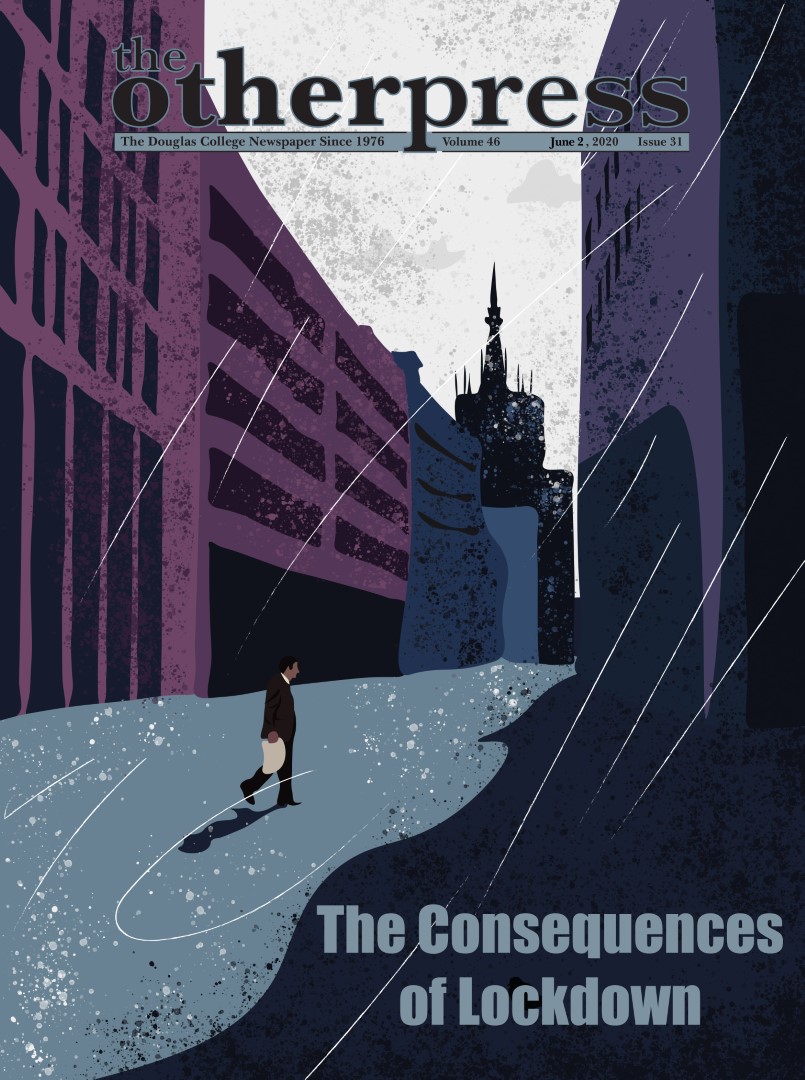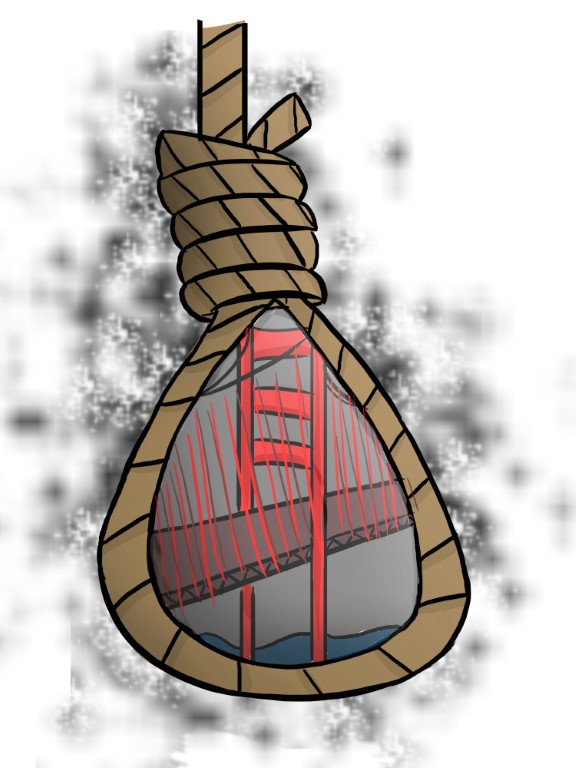
The aftermath of the economical shutdown and social isolation
By Jessica Berget, Editor-in-Chief
In a previous feature, we talked about the possible psychological effects of the quarantine as a result of the coronavirus. Now that this lockdown has been in full swing for a couple months now, the consequences of both social isolation and a prolonged state of emergency are quickly beginning to surface. Let’s take a look at the effects of the COVID-19 lockup until this point.
Overdose
As a result of prolonged isolation, growing unemployment rates, and extreme social restrictions, more people have been misusing alcohol and drugs. A BC Coroners Service illicit drug toxicity death report from January 1 to April 30 shows the number of suspected drug related deaths from the beginning of the pandemic to the most recent month. As we didn’t go into lockdown until March, the number of overdose deaths for January and February are less than 80.
There is a spike in the number of deaths starting the same month the restrictions began. In March, at the beginning of the lockdown, there were 112 suspected overdose deaths. In April there were 117 suspected drug related deaths—a 39 percent increase from April last year (84). The possibility of contracting the virus is a concern for many people who are in need of help for their addictions, so they cannot get the assistance they need—according to a statement made by medical health officer Dr. Karin Goodison in a Global News article.
Suicide
Overall, mental health has taken a downturn in these times of extreme stress and extreme distance from our support circles. In April, an Angus Reid poll showed that half of Canadians said their mental space was deteriorating during the pandemic. Consequently, suicide attempts have also begun rising all over the world. According to a ABC7 news article, Bay area Dr. Mike deBoisblanc says they’ve “seen a year’s worth of suicide attempts in the last four weeks.” Crisis and suicide hot lines have also seen a surge of calls—some going up to about 30 to 50 percent since the pandemic began. Furthermore, according to Crisis Services Canada, 26 percent of calls and messages (since the end of March) to the National Suicide Prevention Service were COVID-19 related.
According to Crisis Services Canada CEO, Stephanie MacKendrick, the severity of these interactions has also risen with an increase of emergency services being called—which is known as a “active rescues.” There were 62 percent more active rescues in this month as compared to this month last year. MacKendrick says this may be due to no one going to hospitals anymore, so people are not reaching out for help until it is a serious crisis. What’s more is that suicide centres are dealing with a huge decrease in volunteers—about 90 percent—because of the pandemic.
Debt
With many businesses closed and many others out of work, many are turning to the government for financial aid. As a result, many people and institutions—including our own country—have accumulated debt. According to Statistics Canada, Canadians on average earned about $4,383 per month at the beginning of 2019. With the Canadian Emergency Response Benefit (CERB) giving people $2,000 a month, the gap in income will pose a problem for many households resulting in possible debt accumulation.
Furthermore, parliament budgetary officer Yves Giroux reports that the federal deficit for 2020 will likely hit more than $250 billion as a result of COVID-19 and can go higher if lockdown remains longer than originally planned. This is an estimate to the $146 billion in spending the government announced to help people in financial strain from the pandemic. A report by the Bank of Canada also warns that household debt levels are likely to rise and be a serious threat to households whose income doesn’t recover fully from the lockdown. The national debt is currently the largest Canada has ever had.
Abuse
With more people staying indoors and not being able to go outside or see anyone outside of who they live with, people living in abusive households currently have no other place to go. As a result, domestic abuse rates have risen during this lockdown.
BC human rights commissioner Kasari Govender says the increased demand of anti-violence services gives a glimpse into how frequent abuse is happening during the lockdown. “One service provider reported a 300 percent increase in calls over this time,” said Govender in a CTV News article. The Vancouver Battered Women’s Support Services has seen the 300 percent call increase over the past three weeks—citing isolation making it harder for people to leave abusive situations.
In an article for Global News, the advocacy group’s executive director Angela Marie MacDougall said 40 percent of the callers are first timers, and it’s not just people being abused they are hearing from. Calls from concerned neighbours, friends, family, and even young children have reached out through these services. Vancouver Police say they have yet to see a spike in their domestic abuse rates but are watching for any forms of abuse that may be occurring during lockdown.

People wrongly fearing the hospital
Many doctors in hospitals across Canada are noticing an alarming trend: hospital admission rates are plummeting. For CTV News, the president of the Canadian Cardiovascular Society (CCS) states that there is a 50 to 60 percent decrease in patients who would regularly be in care for cardiac problems. The potential reasons for this avoidance being that people are scared of contracting the virus at the hospital, and that many don’t want to overburden the system that they’ve been warned would be overwhelmed. But doctors everywhere are trying to dispel these myths and encourage those who may have health issues that they need to go to the hospital.
Dr. Jeff Shaw and Dr. Debra Isaac, both experts of cardiology in Calgary, insist that the hospital is a safe place and that the population’s non-COVID medical concerns are still urgent priorities. In a saddening tweet, Shaw states “I lost the battle to save a patient last night because they waited to long to come to the hospital.” In an interview for CTV News, Shaw also brings up a very pressing point: “I certainly don’t think we’re overwhelmed and people need to hear that.”
No elective surgeries or cancer screenings
Fear of people contracting the virus or overcrowding hospitals also forced hospitals to halt all elective surgeries and cancer screenings. On April 15, almost 14,000 BC elective surgeries were cancelled since cancellations began in March. Across Canada, over 400,000 surgeries were either cancelled or postponed. On May 9, some Canadian hospitals have reported they are addressing the backlog of elective surgeries that had to be cancelled in the midst of the pandemic.
According to CTV News, elective surgeries resumed as of May 18, but officials say it could take up to two years for the backlog of people waiting to be cleared. Consequences for these cancelled surgeries have already surfaced in April as a 50-year-old father in BC died waiting for a surgery planned for March. Ontario’s health minister also reports about 35 people in the province have died as a result of not receiving heart surgery promptly.
Screenings for cancer has also been temporarily suspended because of the virus. In Ontario, routine cancer screening has plummeted because of the pandemic, according to The Star. Furthermore, mammograms from the Ontario Cervical Cancer Screening Program were down nearly 50 percent in March. On the BC Cancer website, it states screening for breast cancer will resume in select centres in June and that all three screening sites will be back by July. No date yet has been given for cervical or colon cancer screening.
Even when a COVID-19 vaccine is determined, the world will still be reeling and picking up the pieces left as a result of this lockdown. For now, there’s no telling how this quarantine will affect society in the future, but it’s clear that social isolation, economic shutdowns, and financial hardship have already taken a serious toll on our society that we must address.


